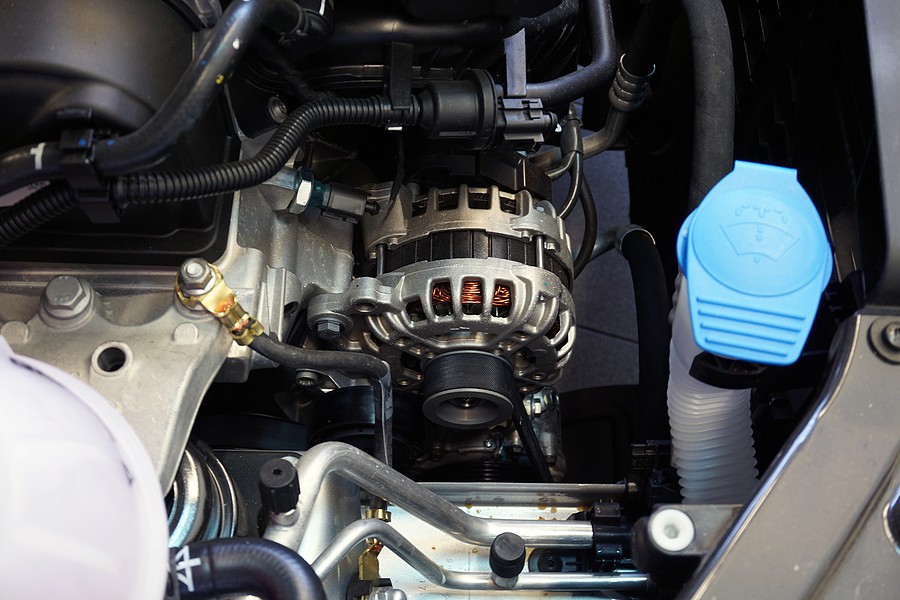If you suspect that you are dealing with a bad alternator, here are the 10 symptoms to help you understand “how to tell if you have a bad alternator?”
- Dashboard warning lights
- Dimmer headlights
- Flickering headlights
- Battery problems
- Troubles with connections
- Weird noises
- Damaged belts
- Weird smells
- Malfunctioning accessories
- Vehicle stalling
Learning one or two things about your vehicle's components helps you prevent major complications in the future and allows you to detect problems early. Like many of the other minor components in your car, the alternator is a critical element, and it plays a major role in your vehicle.
The alternator might go bad at some point in time, and that's why you have to replace it whenever required. However, you might deal with some issues that make this alternator fail prematurely. Thus, understanding the different symptoms of a bad alternator is essential to prevent other complications.
This article provides you with all you need to know about” how to tell if you have a bad alternator?” We will answer this question by summarizing the 10 most common bad alternator symptoms. Once you notice these symptoms, your mechanic needs to inspect the alternator and confirm that it's not bad. Otherwise, your alternator needs to be replaced.
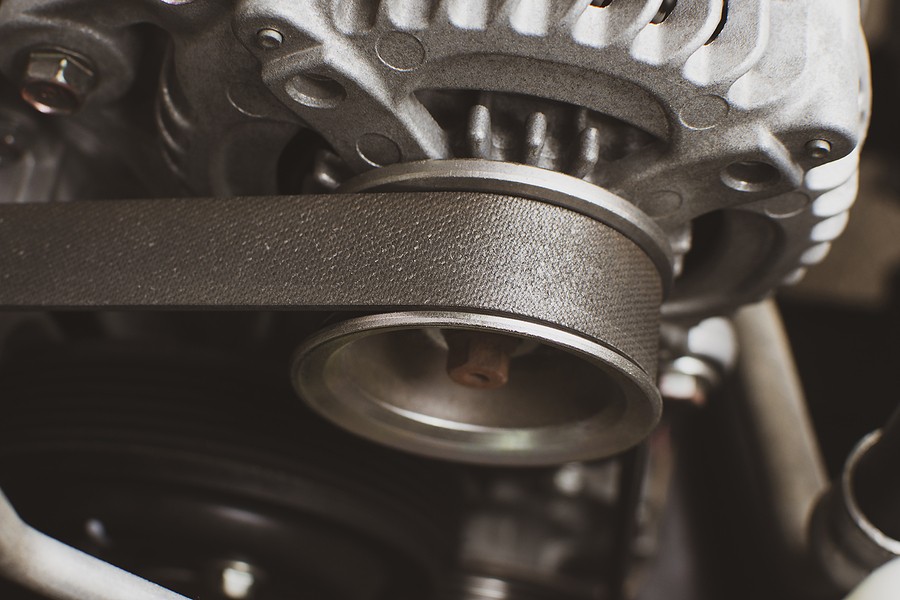
What is the alternator, and what does it do?
Before we provide you with a summary about “how to tell if you have a bad alternator?” We must get a general understanding of the purpose of the alternator in your vehicle.
The alternator is not one of those common components that most drivers are familiar with. However, it is, in fact, one simple component that plays a critical role in your car. Any simple problem and the alternator can lead to significant issues that could start with slow car movement and a fully dead vehicle.
So, what's the alternator?
The alternator contains several wires that take the energy from the engine and convert it into electrical current. Once this electrical current is produced, it supports and powers all accessories in your car, including the headlights and all components that require electric current.
There is a very common misconception that some inexperienced drivers think that the battery is the one responsible for charging these accessories. However, the battery is only responsible for providing the initial charge to get your vehicle going. After that, it is all the alternator job. Come off the alternator even powers the battery and keeps it fully charged for the next time you start your car.
Note that the process in the system could be different in electric and hybrid cars. These cars how are the accessories through the battery all the time. They rely on regenerative breaking systems that allow the battery to stay charged all the time, so the alternator discussed in this article focuses on vehicles equipped with a combustion system rather than a combustion system hybrid or electric vehicles.
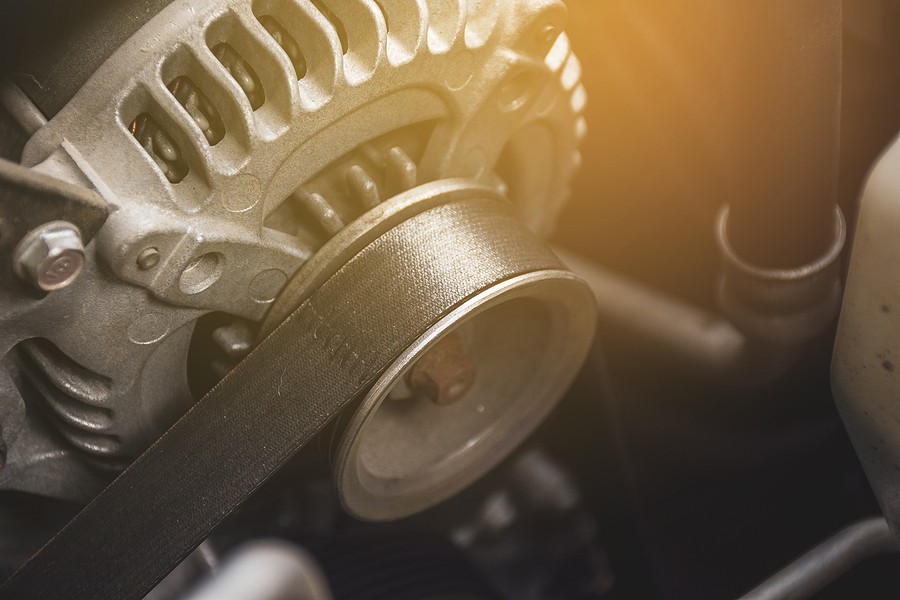
How to tell if you have a bad alternator? 10 symptoms
Now you have a good understanding of the alternator and its critical role. The next step is to maintain a good alternator and detect any initial issues before getting more complicated. Experts confirm that if you detect alternator problems early, there is a very high chance that you can resolve the issue without needing to spend so much money on the repair.
We must never notice any of the following symptoms to have your vehicle checked and inspected by your mechanic to confirm whether you had a bad alternator or not. That's the case; then you should replace the alternator immediately for your vehicle to operate properly:
1. Dashboard warning lights
The first and most common symptoms that you'll notice immediately as some dashboard warning lights fear these warning lights will not say you have and that alternator. Instead, it will show some issues with the battery, the ABS, and others. All these supported and powered systems by the alternator will be impacted.
You must take all these warning lights seriously because ignoring them for a long time might lead to further complications that will cost you thousands of dollars for repair. Even if the problem doesn't have to do with the alternator, ignoring the warning lights is never good.
2. Dimmer headlights
Another thing you might notice is that your headlights are not as bright as they should be. This indicates that your alternator is about to fail, and it did not fail. That's why even simple symptoms like a dimmer headlight might indicate a future problem. Therefore, if you're not relying completely on the headlights, it doesn't hurt to check with your mechanic and confirm that the alternator is in good condition.
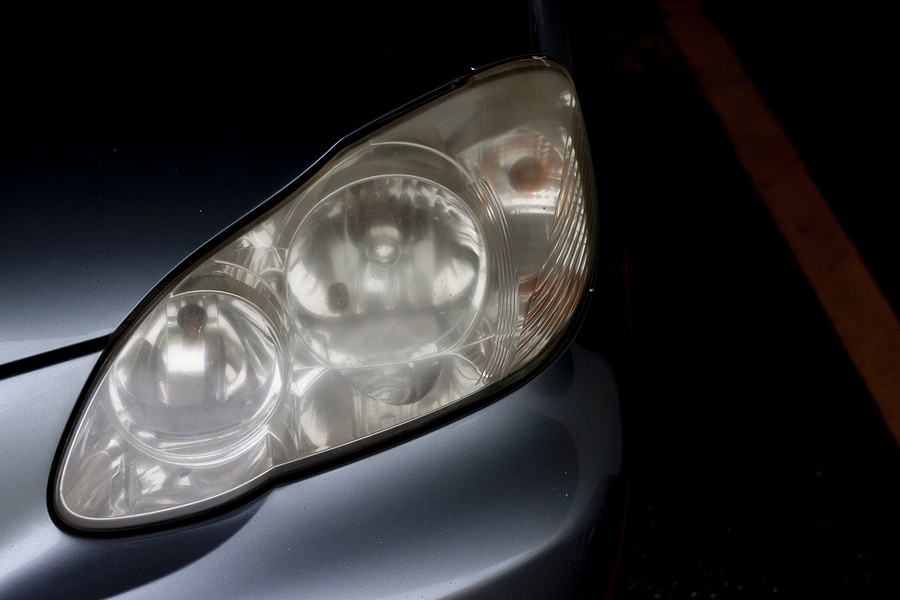
3. Flickering headlights
Another common symptom of a bad alternator is when you have flickering headlights. In other words, the headlights might work just fine for some time, and then they might turn off on their own. This indicates that the alternator is trying very hard to keep charging these headlights, but it's getting to a point where it can't.
This indicates that the alternator is overworking and overstressed. Also, it could indicate that the alternator is approaching the main of its lifestyle. Whatever the reason is behind flickering headlights, you should check the alternator as a first thing in addition to checking the battery as well because it could be a potential culprit carrot
4. Battery problems
Since the alternator charges the battery as the vehicle is running, when you notice that the battery is drained completely or is not fully charged the next time you want to start your car, this could mean that alternator. Again, you can test this by giving your vehicle a jumpstart and seeing if your car starts or not.
Your vehicle might start for the first time, but then you better be drained again because it uses the entire energy to start your car for this first time, but it didn't get a recharge from the alternator as you run your car.
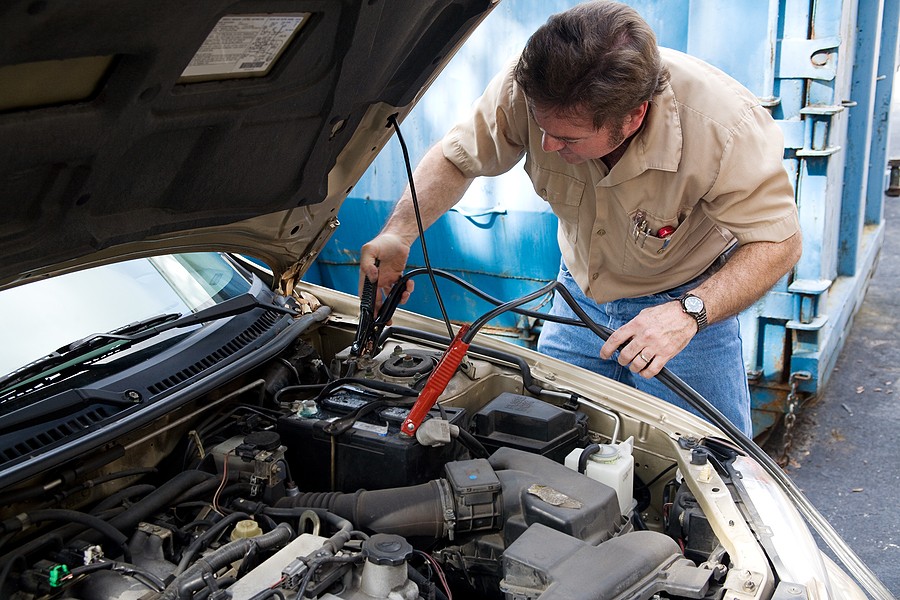
5. Troubles with connections
In some instances, you might suspect that you have alternator problems, but it could be just some loose connections. So therefore, even if you're dealing with symptoms of an event alternator cannot take a closer look at all the connections and confirm that they are not lost, or they have no problems, and then can like move forward with inspecting the alternator itself and investing some money or placing it.
6. Weird noises
At that alternator might also cause some weird noises spirit whether these noises are related to the bad alternator or any other components, you must not ignore them. The more you drive your car, the more you become familiar with these strange noises. Typically, I bet the alternator might cause weird, whining voices that you'll immediately notice.

7. Damaged belts
Like the loose connections, sometimes you feel that you have a bad alternator, but you end up with some issues with other components connected to the alternator. So, for example, if the belts are not in good shape and are not communicating the energy between the alternator and the other components and the engine, you see some symptoms that could mean you have a bad alternator.
8. Weird smells
Like the weird noises, taking any weird smells seriously is extremely important. Sometimes these smells might be good, but they might be related to internal issues.
Typically, about alternator might cause some overheating smells that could feel your vehicle's rubber is getting very hot or the internal wires are getting very hot inside the alternator itself. Whenever you notice any of these smells, you should not ignore them, and you should consult your mechanic to confirm with him what's going on.
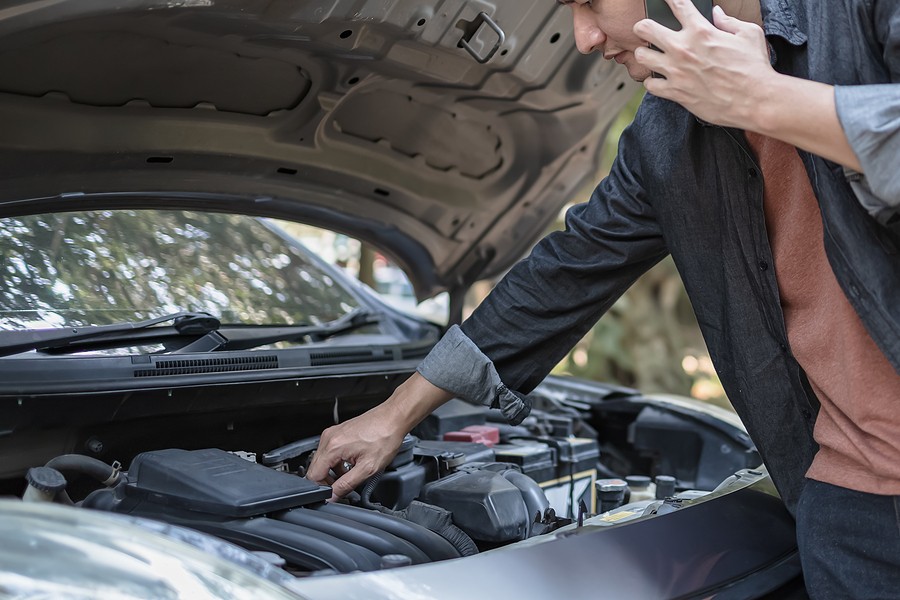
9. Malfunctioning accessories
Unsurprisingly, I completely failed the alternator might be the performance of your accessories. If the alternator doesn't work and does not produce electrical current, how are your accessories going to work? You should keep an eye on the accessories, and if you feel that the accessories are in good shape and don't have any problem, it could be a potential hidden culprit like the alternator.
10. Vehicle stalling
Finally, that alternator might lead to vehicle stalling or difficulty starting. Whenever this happens, you should not immediately conclude that it's a bad alternator because this symptom indicates other faulty components like those related to the engine itself.
Therefore, when you notice that your vehicle stalls, check with your mechanic and have him look at the overall vehicle and consider checking the alternator as well because it could be a potential culprit.
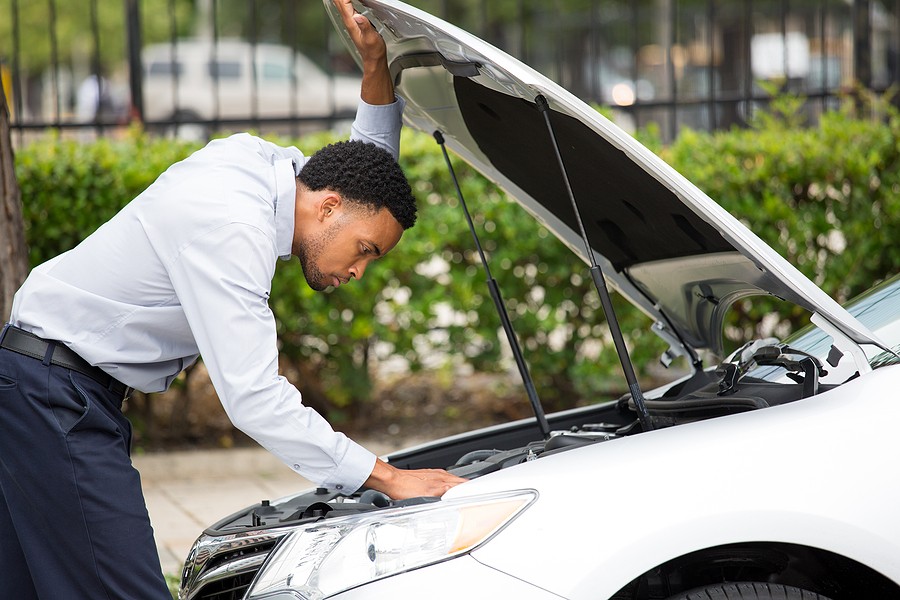
How much does it cost to replace the alternator?
Replacing the alternator is not a very cheap job, which would cost you somewhere between $500 and $1000. However, this price range climbs up significantly if you're driving a luxury car.
Milk that this price range also includes labor costs which means if you could have a small independent chopper place sales tornado for you, you could save on labor costs. Similarly, if you have the right level of mechanical skill sets, you can even replace your alternator without needing a professional to eliminate labor costs.
Is it worth fixing the alternator?
One of the first questions that you always have to ask yourself whenever you're dealing with car repairs is whether it's worth fixing this issue or not. So that's why it's important to understand is it worth fixing the alternator or not?
Typically, this depends heavily on your vehicle's overall situation. To help you better answer this question, you must calculate the total repair costs, including all other problems. Fear, for example, if you have an engine problem, a transmission issue, and others, you should add up all repair costs as one number.
Then, take this number and compare it to your vehicle's overall value. If you notice that repair costs are piling up and getting close to this value, you should not fix the vehicle, and it's not worth replacing delta and other repairs.

Final thoughts
The alternator is an essential component in your vehicle, and if it has simple issues, it can lead to many cars problems, especially those affecting the electric accessories. The situation becomes very dangerous if you rely on these electric accessories for certain safety features, especially for driving a modern car.
This article highlighted several symptoms to help you answer the question “how to tell if you have a bad alternator” note that whenever you notice these symptoms, you must fix your vehicle immediately to prevent dealing with other complications that will cost you thousands of dollars on repair.
Many drivers might simultaneously deal with several other problems, along with the alternator issues. Therefore, we highly recommend that you perform an overall evaluation of your vehicle. If you confirm that repair costs are piling up and approaching 75% or more of your vehicle's value, that's when you should step back and ask yourself why you should sell your car instead of wasting their time, money, and effort. If that's what you ended up with, we are always here to help you at cash cars buyer!
Cash Cars Buyer is one of the top-rated car removal companies in the nation that guarantees to pay you the top dollars and provide you with free towing despite your living location around the United States.
Our process is very straightforward and doesn't take more than a couple of days to get your car removed safely and for the most money.
All it takes you is to:
- Describe your car’s type and condition
- Receive our instant free quote
- Accept the quote
- Get your car removed and receive your cash payment on the spot!
To learn more about our process and our team, you can reach out to us by calling us at (773) 791-4363 or visiting our home page click on the free instant online offer.

